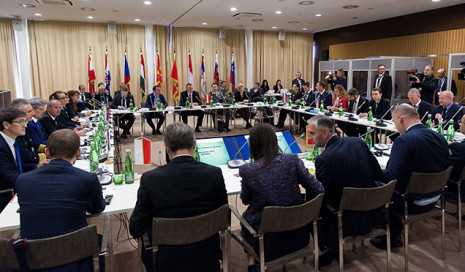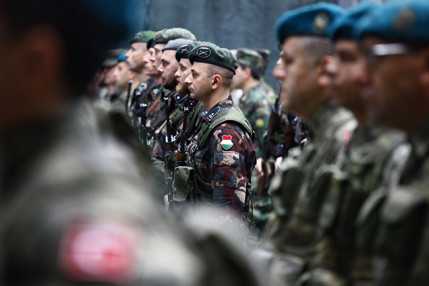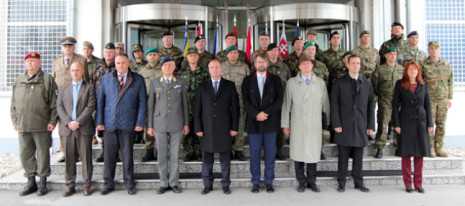Mandate of EUFOR Althea Must be Maintained in Bosnia-Herzegovina
Szöveg: honvedelem.hu / MTI | 2016. november 13. 9:38In a phone interview to Hungarian news agency MTI on Tuesday, 8 November, while underlining the commitment of the representatives of Central European Defence Cooperation (CEDC) countries to the EU-led military operation, Deputy State Secretary for Defence Policy and Planning Péter Siklósi emphasized that the executive mandate of Operation EUFOR Althea in Bosnia-Herzegovina must be maintained, and as long as it is necessary, the participating nations will continue contributing troops to the mission.

Putting an end to the Bosnian War (1992-1995) that claimed more than 100,000 lives, the Dayton Agreement was implemented by the UN as well as by a 60,000-strong NATO-led Implementation Force (IFOR). One year later IFOR was succeeded by a smaller Stabilization Force (SFOR), and then by EUFOR Althea in 2004, with a current manpower level of 800 personnel in the theatre. Hungarian Brig.-Gen. Albert Sáfár is the Deputy Commander of EUFOR.
The operation currently involves 170 Hungarian troops, more than 40 of whom are deployed in the theatre, but it also draws on an out-of-country, rapid reaction Intermediate Reserve Force (IRF). A 120-130-strong company of the IRF is on standby in Hungary, and if the need arises, it can be called upon at very short notice to swiftly intervene in Bosnia-Herzegovina. The Hungarian unit on standby rotates with an Austrian one every summer, and the Hungarian troops returned to Hungary this summer.

The in-theatre forces are responsible for liaising with local communities and gathering information. Besides, they operate an Explosive Ordnance Disposal (EOD) team to assist with local mine clearance and to provide technical support and training. The Bosnian War left more than one million pieces of unexploded ordnance (UXO) scattered throughout the Western Balkans country, and since then, the number of live mines has reduced to around 200,000. Today, the environments of cities, main roads and tourist spots have already been cleared of mines, but many abandoned areas are still mine-infested.
During the joint visit, the six CEDC member countries were introduced to the military operation and had opportunity to express to the Bosnian leadership their commitment to the stability and security of the Western Balkans including Bosnia-Herzegovina, Péter Siklósi pointed out, adding that the member states support the integration of the country into Euro-Atlantic structures.

Photo: Csaba Krizsán (MTI) and archives